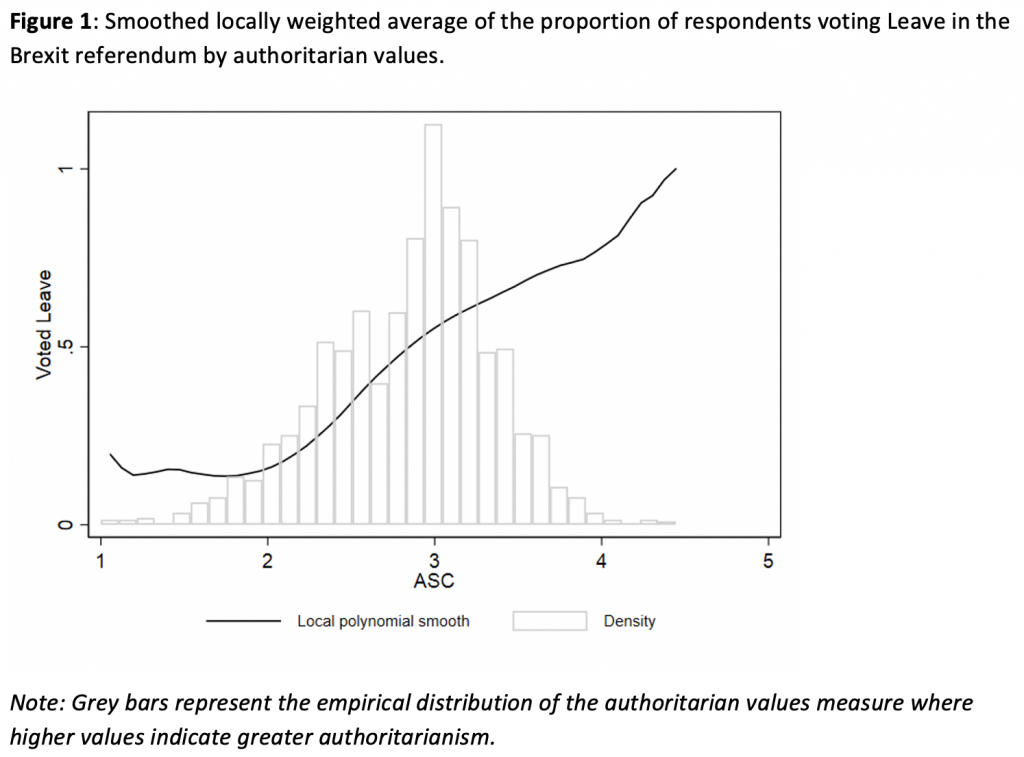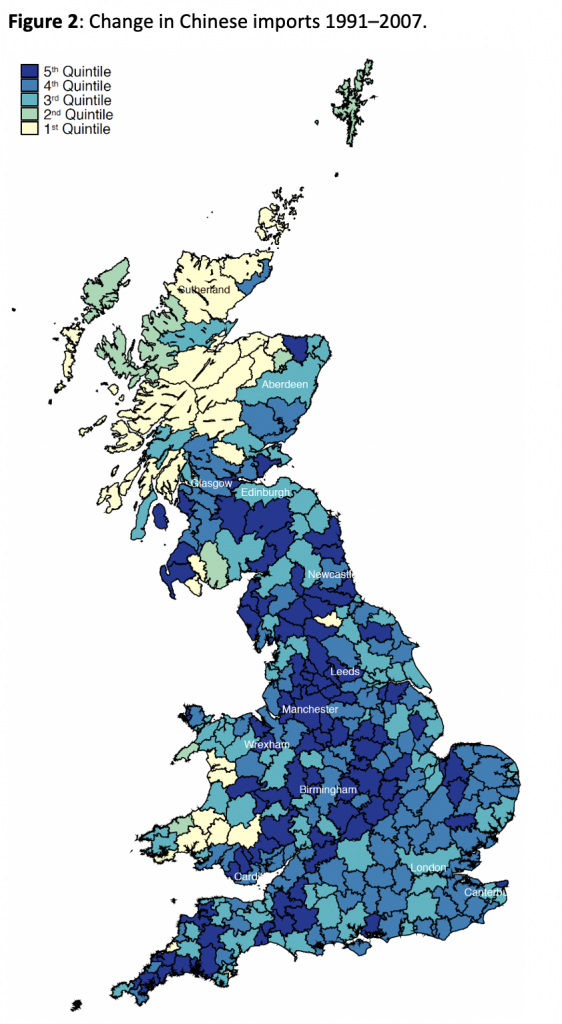Voters who hold authoritarian values were more likely to vote Leave in the 2016 Brexit referendum. Cameron Ballard-Rosa, Mashail A. Malik, Stephanie J. Rickard and Kenneth Scheve show that these values are in turn related to long-term economic shocks associated with globalisation, by using data on the varied effect of changes in Chinese imports on the labour market across Britain.
Fifty-two percent of voters chose ‘Leave’ in the UK’s 2016 referendum on EU membership. Who voted Leave and why? One of the strongest predictors of voting for Brexit was a bundle of characteristics often referred to as ‘authoritarian values’. Authoritarian values can be understood as an individual preference for order and conformity and belief that these value outcomes should be achieved by force if necessary.
Authoritarian values played a key role in the Brexit vote, as illustrated in Figure 1, which presents a smoothed locally weighted average – drawn from a nationally representative sample of adults in the United Kingdom – of the proportion of respondents voting Leave against a measure of authoritarian values. As can be seen in the figure, there is a remarkably strong association between individuals with greater authoritarian tendencies and the likelihood of voting in favour of Brexit: while individuals with the lowest observed authoritarian values have under a 20% likelihood of voting for Brexit, respondents with the highest authoritarian values have over a 90% likelihood of doing so.
Where do authoritarian values come from? Why do some people have stronger authoritarian values than others? We argue that contemporaneous economic threats increase the likelihood that people adopt authoritarian values. Economic shocks that have a sustained long-term negative effect on local communities can engender value change. We focus on one potential source of economic threat: the impact of Chinese imports on local labour market outcomes in the United Kingdom.
UK imports from China have increased dramatically over the past several decades. The growth in Chinese imports occurred primarily because of China’s internal reforms and their admission to the World Trade Organization. However, the impact of growing Chinese imports fell unevenly across the UK. Figure 2 maps a measure of Chinese imports per worker by local labour markets (measured using the ONS Travel to Work Areas) across Great Britain. Local economies in the north west of England were hit harder by Chinese imports than areas in the south east. Areas hit hardest by the Chinese imports experienced decreases in manufacturing employment and average wages.
Using an original 2017 survey representative of the British population and a measure of Chinese imports to capture localised economic shocks, we estimate the effect of economic threat on authoritarian values. We find that individuals living in regions where the local labour market was more substantially affected by imports from China have significantly more authoritarian values. Our estimates are robust to the inclusion of a wide variety of demographic variables and controls for immigration patterns.
Our findings help to explain why individuals more exposed to globalisation (as measured by Chinese imports) were more likely to vote Leave in the UK’s 2016 referendum on EU membership – a previously reported observation. We demonstrate that the China trade shock engendered the adoption of more authoritarian values. These values in turn help account for the opinions and behaviours of Leave voters who in seeking order and conformity desired to reduce immigration and ‘take back control’ of policymaking. Understanding where authoritarian values come from sheds new light on the Brexit vote, a decision that fundamentally reshaped the UK’s relationship with the EU and indeed the world.
Cultural values can be a consequence of economic change. Thinking of cultural and economic explanations as disjoint accounts invites misinterpretation of the role that these forces play in explaining pivotal events like Brexit.
___________________
Note: the above draws on the authors’ published work in Comparative Political Studies.
Cameron Ballard-Rosa is Assistant Professor of Political Science at the University of North Carolina, Chapel Hill.
Mashail Malik is a Postdoctoral Fellow in Political Science at Harvard University.
Stephanie Rickard is Professor of Political Science at the London School of Economics.
Kenneth Scheve is Dean Acheson Professor of Political Science & Global Affairs at Yale University.
Photo by Christian Lue on Unsplash.









